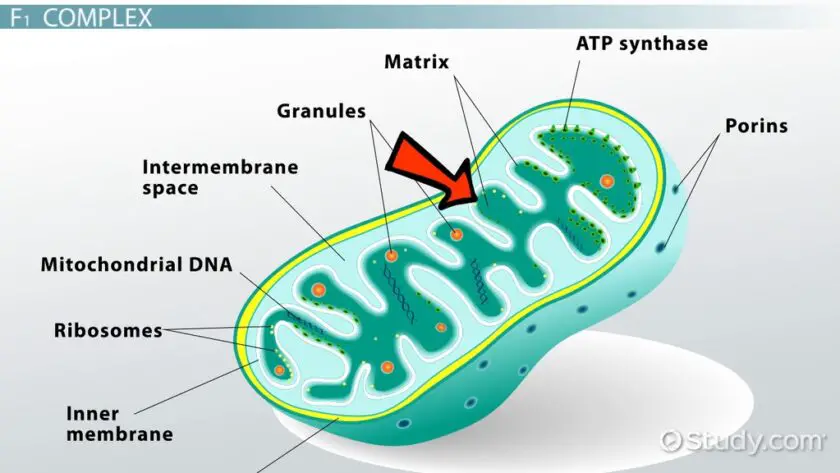Our mitochondria are incredibly important because they are considered the powerhouse of our cells. Think of them like our energy factory hard at work in our cells. They are responsible for producing energy by burning micronutrients such as vitamins, minerals, enzymes and more.
They are often referred to as the “powerhouses” of the cell because they produce energy in the form of ATP (adenosine triphosphate). Mitochondria are found in most eukaryotic cells, which are cells that have a defined nucleus and membrane-bound organelles. The energy-producing function of mitochondria is accomplished through a process called cellular respiration, which occurs in the mitochondria.
If Mitochondria Is Sluggish What Happens in Our Health?
If mitochondria are not functioning properly, it can lead to a variety of health problems. Mitochondrial dysfunction has been linked to a number of diseases and conditions, including neurodegenerative diseases, heart disease, diabetes, and cancer. When mitochondria are sluggish or not functioning properly, the cell may not be able to produce enough energy to meet its needs, which can lead to a range of symptoms. These symptoms may include fatigue, muscle weakness, difficulty with exercise tolerance, and problems with memory and concentration. In severe cases, mitochondrial dysfunction can lead to organ failure and death. If you are experiencing symptoms that you think may be related to mitochondrial dysfunction, it is important to consult with a medical professional for a proper diagnosis and treatment.
With this in mind, it is important to know that we need to enhance our mitochondrial function.
How To Enhance Mitochondria Function
There are several ways you can potentially enhance mitochondrial function:
- Exercise regularly: Physical activity has been shown to increase the number and function of mitochondria in cells.
- Eat a healthy diet: A diet rich in whole, unprocessed foods, including a variety of fruits and vegetables, can provide the nutrients needed for optimal mitochondria function.
- Get enough sleep: Adequate sleep is important for overall health and may also help to support mitochondria function.
- Reduce stress: Chronic stress can have negative effects on the body, including on mitochondria function. Practice stress-reducing activities such as meditation or yoga.
- Consider supplements: Some people may benefit from taking supplements that support mitochondria function, such as CoQ10, alpha lipoic acid, and acetyl-L-carnitine can all be valuable.
These are some of the basics that help to enhance mitochondria function. Fundamentals if you will. If these bases are not covered it is difficult to make progress with the health of your mitochondria. Next, we’ll share some more advanced ways to enhance your mitochondria function that specifically have been measured to strengthen and support the health of the mitochondria.
5 Ways To Optimize (biohack) Mitochondria Function:
1. Get Cold Exposure:
There is some evidence to suggest that cold exposure may have beneficial effects on mitochondria function. One study found that exposure to cold temperatures increased the number and function of mitochondria in the muscles of mice. Another study in humans found that cold water immersion increased the activity of mitochondria in the cells of the skin.
One theory is that cold exposure may help to stimulate the production of a protein called uncoupling protein 1 (UCP1), which is found in the mitochondria of fat cells. UCP1 helps to regulate the production of heat in the body, and it has been suggested that increasing UCP1 may lead to improved mitochondria function.
2. Get Red Light Therapy (RLT):
Red light therapy is a type of phototherapy that involves the use of low-level red and near-infrared light to stimulate the body’s tissues and promote healing. Some studies have suggested that red light therapy may have a positive effect on mitochondria function.
One study found that red light therapy increased the activity of mitochondria in the cells of the skin, leading to improved tissue repair and reduced inflammation. Another study found that red light therapy improved the function of mitochondria in the brains of mice with Alzheimer’s disease, leading to improvements in memory and learning.
It is thought that the energy produced by red light therapy may stimulate the production of ATP (adenosine triphosphate) in the mitochondria, which is the primary source of energy for cells. This increased production of ATP may improve the function of mitochondria and promote healing in the body. Click here to read the top 10 health benefits of Red Light Therapy.
I have a red light therapy device from Mito Red Light, you can visit them here. Use the discount code: healthywildfree for 5% off your purchase.
3. Fasting & Caloric Restriction:
Fasting and caloric restriction are dietary interventions that involve reducing the intake of calories, either through skipping meals or reducing the overall number of calories consumed. Some studies have suggested that these interventions may have beneficial effects on mitochondria function.
One study found that intermittent fasting (periods of alternating between normal eating and calorie restriction) increased the number and function of mitochondria in the muscles of mice. Another study found that caloric restriction improved the function of mitochondria in the brain cells of mice, leading to improvements in learning and memory.
It is thought that fasting and caloric restriction may promote the production of a protein called sirtuin 1 (SIRT1), which is involved in the regulation of mitochondria function. Increased production of SIRT1 may lead to improved mitochondria function and potentially have other health benefits as well. You can also enhance this and speed it up by taking a ketone supplement while fasting. I find this to be quite an incredible feeling personally. I use Trubrain ketones which you can get in a powder form (with free shipping!) at this link.
4. HIIT (High Intensity Interval Training):
High-intensity interval training (HIIT) is a type of exercise that involves brief periods of intense exercise interspersed with periods of rest or low-intensity exercise. Some studies have suggested that HIIT may have beneficial effects on mitochondria function.
One study found that HIIT increased the number and function of mitochondria in the muscles of mice. Another study in humans found that HIIT improved the function of mitochondria in the cells of the skin.
It is thought that the high-intensity nature of HIIT may stimulate the production of ATP (adenosine triphosphate) in the mitochondria, which is the primary source of energy for cells. This increased production of ATP may improve the function of mitochondria and potentially have other health benefits as well.
5. Take Ketone Supplements:
Ketones are a type of molecule that the body produces when it breaks down fat for energy. Some studies have suggested that ketones may have beneficial effects on mitochondrial function.
One study found that the use of ketones as an energy source improved the function of mitochondria in the brains of mice with Alzheimer’s disease, leading to improvements in memory and learning. Another study found that ketones increased the number and function of mitochondria in the muscles of mice.
It is thought that the use of ketones as an energy source may help to support the function of mitochondria and potentially have other health benefits as well. The production of ketones can be increased through a high-fat, low-carbohydrate diet, known as a ketogenic diet, or through the use of supplements that contain ketones. Your body also produces more ketones when you fast, so if you take ketones while you fast you’ll enhance your mitochondria at double the rate! You’ll feel this and feel great. I take Ketones from Trubrain (click here to visit their website, this link will give you free shipping. These taste great and can be added to any drinks. I have added it to tea and water, but can be added to coffee also.
Click here to get ketones from Trubrain to enhance your energy, fat burning and mitochondrial function!





